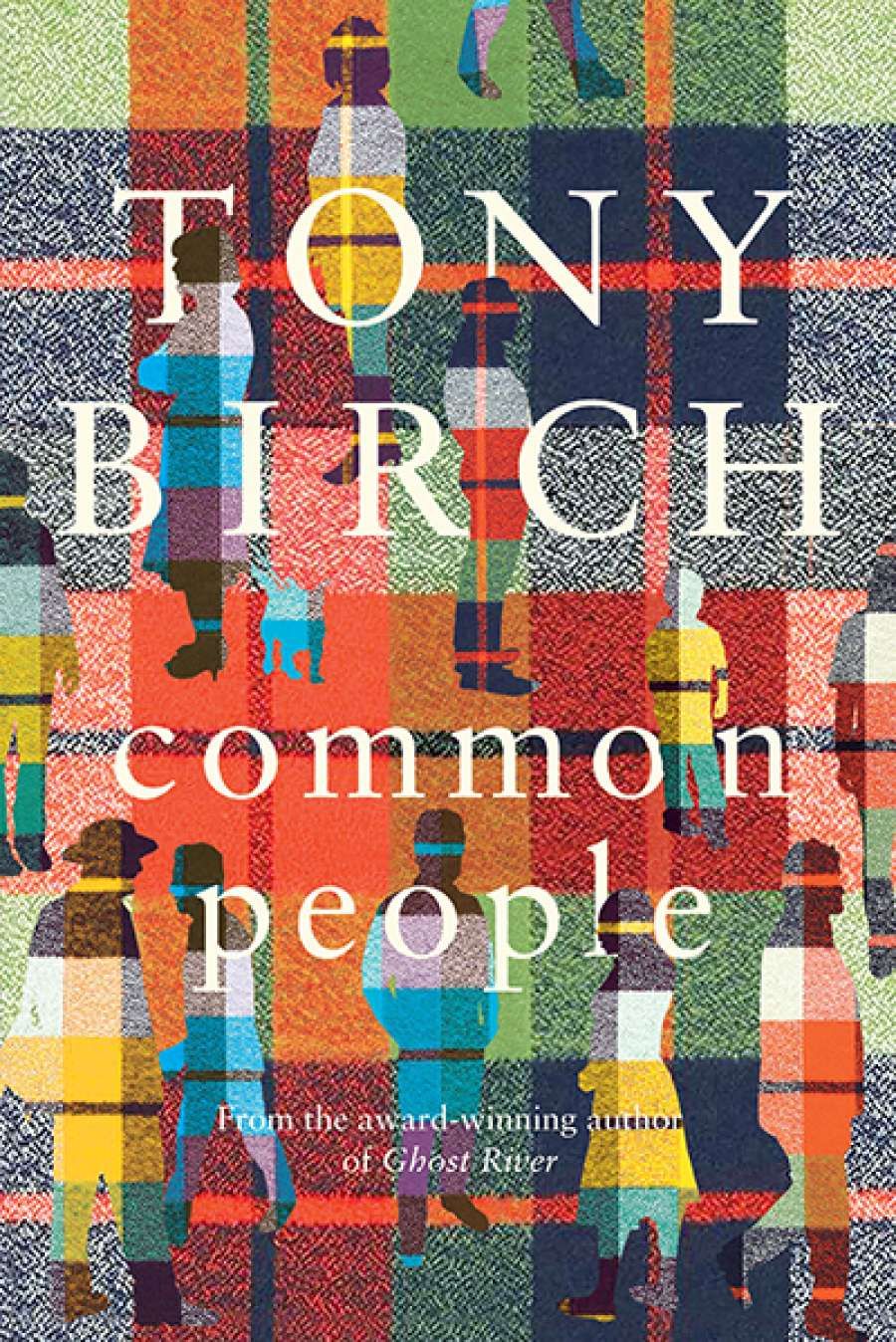
- Free Article: No
- Contents Category: Fiction
- Custom Article Title: Fiona Wright reviews 'Common People' by Tony Birch
- Review Article: Yes
- Online Only: No
- Book 1 Title: Common People
- Book 1 Biblio: University of Queensland Press, $29.95 pb, 218 pp, 9780702259838
Each of these characters, living on the margins and always facing various kinds of repression and aggression, is carefully drawn – indeed, some of the stories read almost as portraits – and always depicted with great empathy and kindness. Despite their circumstances, that is, these characters are never hard or harsh.
Much of this strength in characterisation comes from Birch’s great facility with dialogue and with dialect. There is often a real sense of play at work here, as well as an agility with the quirks and unexpected poetry of spoken language. At its best, this plays out in marvellous – and often beautifully lewd – exchanges of banter, such as that of Marian and Lydia, as they drive through the night towards a semi-legal shift at a meatworks:
‘Well I’d reckon he’d probably fuck a nun.’
‘He probably has [...] And wouldn’t she go off?’ she laughed.
‘Who?’
‘The nun. Imagine that. Locked away in a convent for years and getting out for her first ride. She’d light up like a pinball machine.’
‘Not if she was stiff enough to end up in bed with my old man. You know they named a movie after him?’
‘Which one?’
‘Gone in 60 Seconds ...’
These are deft and telling exchanges, revealing so much about the speaking characters and their relationships with each other and the world. Birch has excellent control over how information is released in these stories, which never feel forced or overblown.
So too do all of these stories eschew sentimentality, despite the depth of barely suppressed emotion that animates them. They are directly told, and deceptively simple in their narration, with little adornment or spectacle. It is precisely this that gives them their strength, because it is difficult, at times, to look so directly and nakedly at these kinds of disadvantage and struggle, not to mention injury and hurt. The strongest stories are largely about loneliness, be it that of the old man Joe Roberts, who never had a family and doesn’t have friends, living alone in a down-at-heel flat; the recovering alcoholic Lola, who finds it easier to connect with a homeless woman than to reconnect with her own daughter; or the adolescent Dominic, wildly grieving after his brother’s death. Others are haunting in the intensity of their imagery. The final scenes of ‘Party Lights’ and ‘Colours’, for example, linger on highly charged and quite mysterious tableaux that are incredibly powerful for their small departures from the realism that dominates so much of the book.
 Tony BirchOften, in these stories, very little happens, at least in a narrative sense. Instead, Birch is interested in capturing the minute operations of his characters’ inner lives, and it is these alone that draw the reader across each story. Mostly, these characters and their voices are extremely compelling, but where the stories are weaker, it is usually because this interiority isn’t charged with as much tension, or seems less tightly focused. In ‘Raven and Sons’, for example, the genealogist Sophie, working a short-term contract in a funeral parlour, is largely unemotional – although she does admit to being ‘driven by a commitment to historical accuracy, not emotion’ – and the result is that the final scene falls somewhat flat. Elsewhere, some of the symbolic gestures that close the stories feel too easily won, as in ‘The Good Howard’, which is nonetheless a tender and charming tale.
Tony BirchOften, in these stories, very little happens, at least in a narrative sense. Instead, Birch is interested in capturing the minute operations of his characters’ inner lives, and it is these alone that draw the reader across each story. Mostly, these characters and their voices are extremely compelling, but where the stories are weaker, it is usually because this interiority isn’t charged with as much tension, or seems less tightly focused. In ‘Raven and Sons’, for example, the genealogist Sophie, working a short-term contract in a funeral parlour, is largely unemotional – although she does admit to being ‘driven by a commitment to historical accuracy, not emotion’ – and the result is that the final scene falls somewhat flat. Elsewhere, some of the symbolic gestures that close the stories feel too easily won, as in ‘The Good Howard’, which is nonetheless a tender and charming tale.
Common People is a book of great empathy and even greater faith: in the goodness of people, even in bad circumstances, in the desire for, and power of, human connection, and in resilience and the ability to recover, regardless of whatever damage, half-understood or otherwise, has come before. These are quiet stories, and gentle, and because of this they always feel like an honouring of these remarkable, strong characters, of the lost past in which so many of them live, of their hopes for, and often inarticulate attempts to build, a better future.


Comments powered by CComment